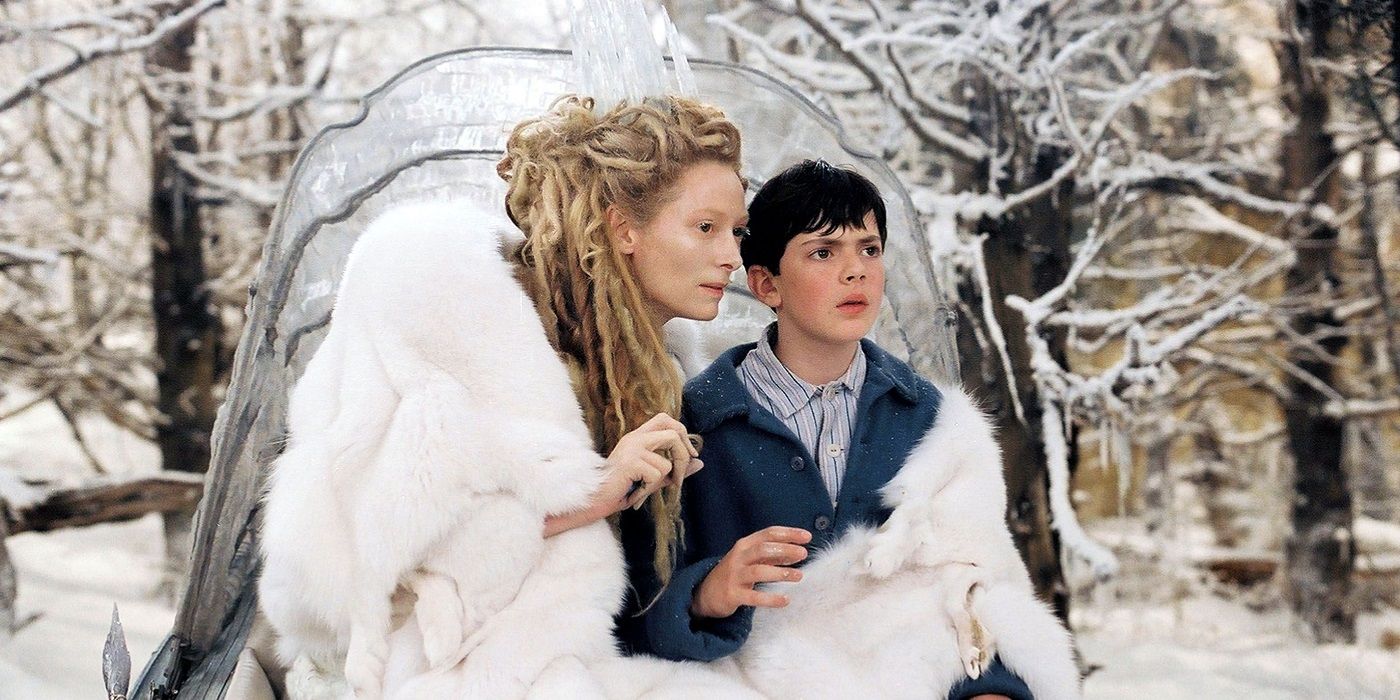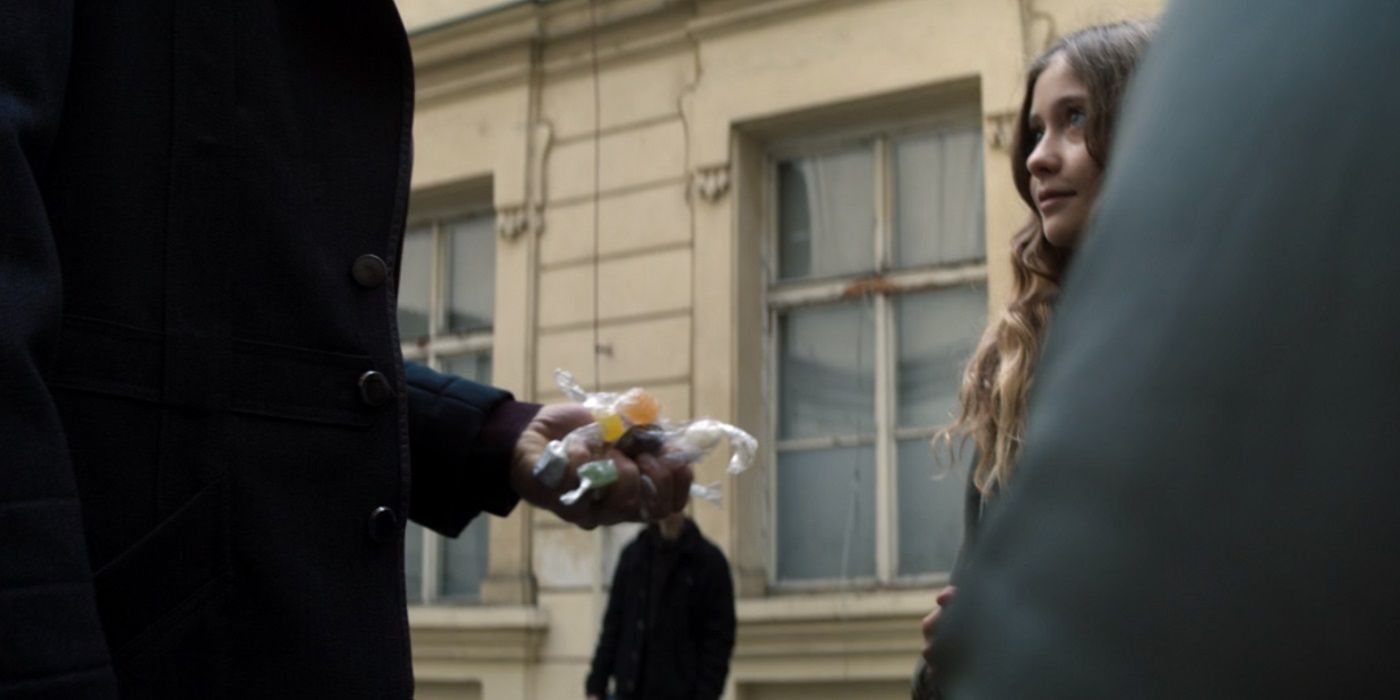WARNING: The following contains spoilers for The Falcon and The Winter Soldier Episode 4, "The Whole World Is Watching," now streaming on Disney+.
The latest episode of The Falcon and The Winter Soldier features a new villain playing a very old trick: specifically, Baron Zemo bribing children with Turkish delight. The tactic is familiar – it’s the literal definition of “strangers with candy” – but the specific kind of sweet draws comparisons to a very different villain: Narnia’s White Witch. That’s not a mistake, and the trick works for Zemo as well as it did for his spiritual predecessor.
Turkish delight is a gel-based confection, with bits of fruit, walnuts and other ingredients embedded in the mixture. In and of itself, it’s not particularly noteworthy as a dessert, though it’s less common in Western countries than in Eastern and Southeastern Europe, where Zemo comes from. That gives it a personal connection: it was a confection of the wealthy in older days, which speaks to his aristocratic heritage. When he claims that it was his son’s favorite dessert, it adds a touch of both tragedy and revenge to the gesture. But he’s still Zemo, and like the White Witch, he has a very dark use for that candy.
Tempting Children Is Symbolically Powerful
The symbolism of the act goes back to Eve and the apple. Both Zemo and the Witch symbolically corrupt their subjects by making them accomplices in their misdeeds. C.S. Lewis based one of the major subplots in The Lion, The Witch and The Wardrobe on the concept, as Edmund is induced to betray his siblings in the hopes of getting more sweets.
Zemo likely won’t exact such a high price from his subjects, but the act is no different. Both he and the Witch offer a material pleasure in exchange for a spiritual sin. In Zemo’s case, it’s less the information itself (which Bucky and Sam want as badly as he does) than in the loyalty he buys: calling the heroes “bad men” who aren’t to be trusted, and eventually bribing the children's ringleader with far more than candy.
In Both Cases, It’s More Tempting Than It Seems
Food plays a large role in the Narnia books, to the point of obsession at times. The first novel is set during the London Blitz, when Lewis began writing The Lion, The Witch and The Wardrobe. Great Britain was under heavy rationing, and sweets were very hard to come by; sugar rationing didn’t end in the UK until 1953. Thus, candy was a special treat, something saved for a holiday like Christmas (further tying the candy into the book's famous notion that “it’s always winter and never Christmas” in Narnia). The White Witch is essentially promising Edmund a second Christmas in a time of want, and he can’t resist the temptation.
Things aren’t quite as dire for the kids in Falcon and Winter Soldier, but the temptation is no less strong. They’re displaced refugees, and treats are in short supply. A man with a pocketful of Turkish delight who just wants them to keep a secret is hard to say “no” to in a world with shortages caused by the Blip. By focusing on Turkish delight, Falcon and Winter Soldier helps make its point about the Blip's level of disruption as well as tipping its cap to a previous baddie who definitely knew how this tactic worked.



